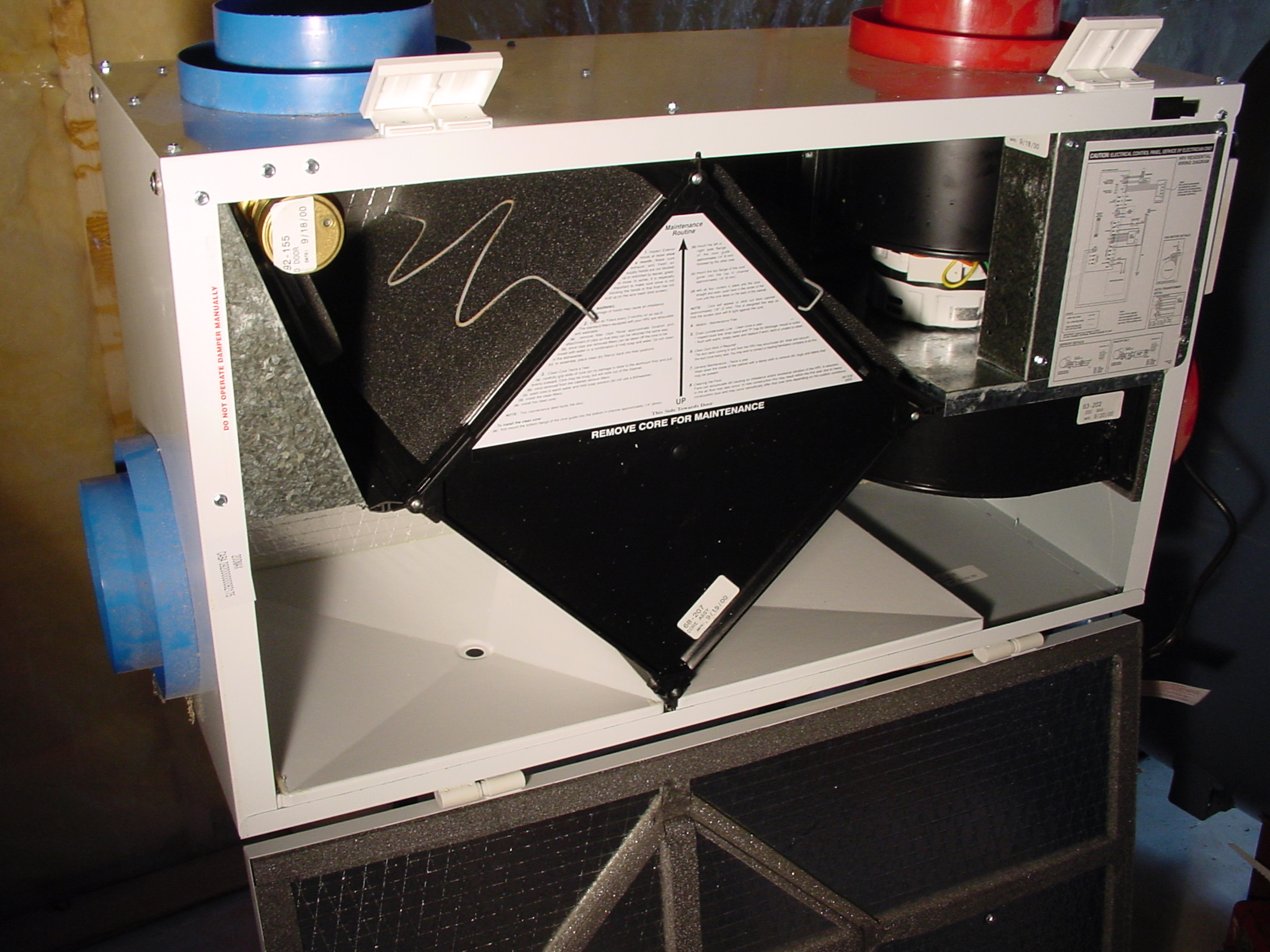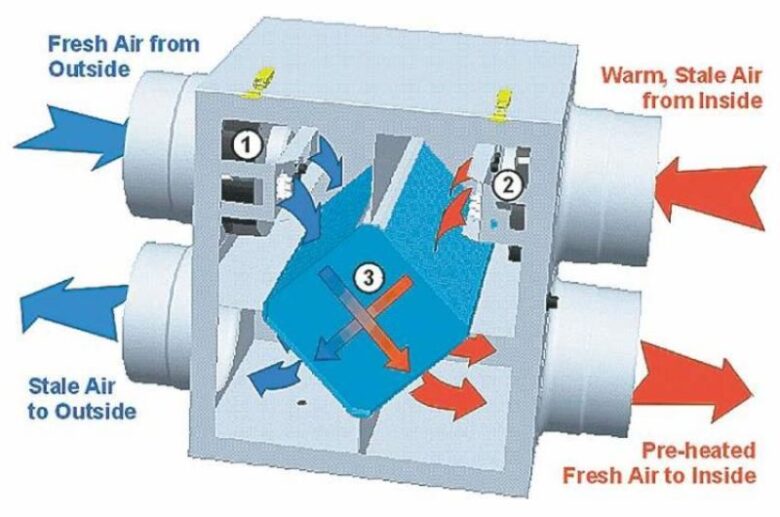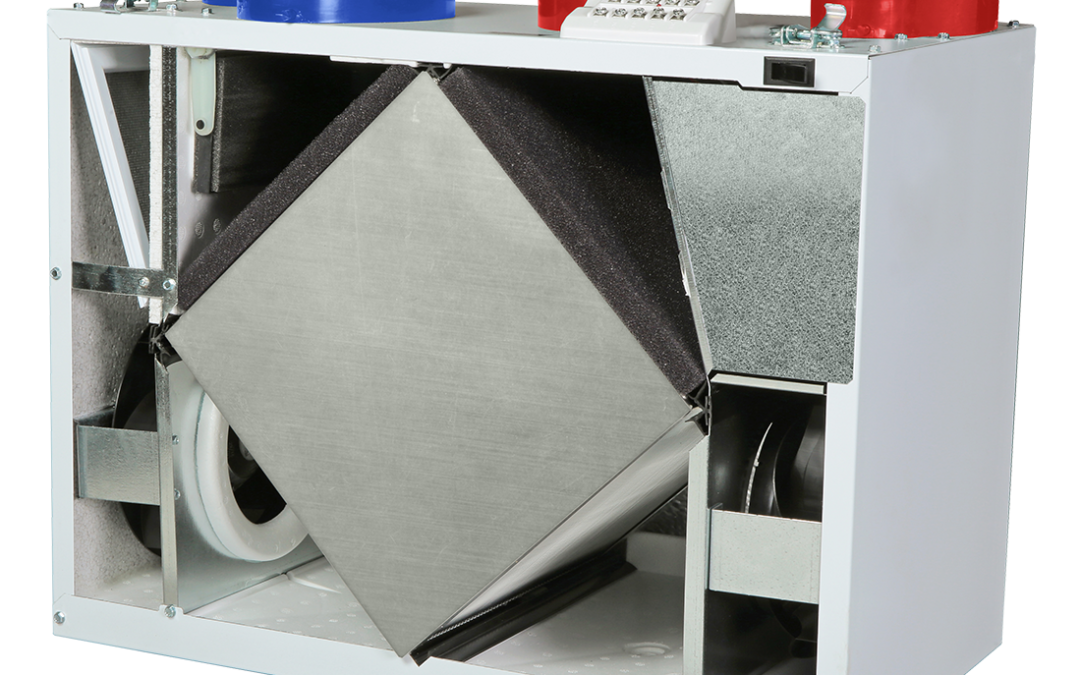Table of Content
Now we have dry windows and warmer air temperatures in the house with no mould. HRV provided excellent service not only on cleaning and servicing our HRV but also on our heat pump for a very reasonable fee. We often wonder how we managed before installation and will never live in a house without one now. The HRV will constantly refresh the indoor air, drawing out stale air and introducing fresh outdoor air. This process will help residents struggling with allergies or asthma, as it won’t allow any of the common airborne allergens to linger in the living space. When the incoming, outdoor air is warmed inside the HRV core, its relative humidity drops.
However, they also prevent fresh, clean air from entering your living space. HRV and ERV systems can work wonders for the air quality in your home, but they do require some maintenance and care to work properly. One of the most important things to remember is that you should never turn the system off, except when it’s time for servicing.
How To Install Hurricane Straps and Ties (9 Steps to Meet Code)
This is a concern because, without the constant ventilation, indoor air quality will suffer. According to international reports worldwide, 15-25% of heat loss from buildings is made happen by air leaking out of the building. Heat Recovery Ventilation proposes a method to bring fresh air into your home without allowing the heat runaway. Not only this is big trouble for the environment, but also heating an unsealed house needs more cost and time. The house heat recovery ventilation system operates without interruption to provide new, filtered air to inhabitable rooms and extracts stale air and moisture from wet rooms like bathrooms.

Because moist air is harder to cool than dry air, this will reduce the load on your air conditioner and save you money on energy bills while also keeping your home more comfortable and providing fresh air. HRVs are ideal for tight, moisture-prone homes because they replace the humid air with dry, fresh air. In climates with excessive outdoor humidity, an energy-recovery ventilator is more suitable. This device is similar to an HRV, but dehumidifies the incoming fresh airstream. When you get your HRV installed and operational, don’t forget to maintain it.
Maximum Airflow Design
This may cause your furnace to run longer and more often than necessary to keep your home warm. It does not take much -20°C air intake to reduce the indoor relative humidity to a reasonable level. This process reduces the energy used by your home’s heating systems to raise the outside air up to the temperature set on your home’s thermostat. After passing through their filters, the incoming and outgoing air streams pass through the many narrow airtight channels inside the heat transfer core . The channels alternate between incoming and outgoing, so every other channel is dedicated to a specific air stream.

For complete ventilation, the American Society of Heating, Refrigerating and Air-Conditioning Engineers recommends replacing indoor air with at least 15 CFM per occupant. Sizes and lengths of ductwork runs can affect efficiency, so it’s important to work with a contractor when planning a system. Though whole-house systems are installed primarily in new houses, they can be retrofitted into some houses that have good access for ductwork, particularly those with unfinished basements.
What is the difference between a Heat Recovery Ventilator (HRV) vs Energy Recovery Ventilator (ERV)?
The units alone range from a low of $400 to about $1,500, with most running from $500 to $900. The only way to estimate the total cost with installation is to get bids from air-conditioning contractors. An ERV can transfer 32% to 68% or more of the moisture from the outgoing air. In addition to being a strong conductor of energy, aluminum is much more durable than conventional materials found in competitive products.
Zehnder ventilation experts are available to help design the best system for a given project, including sizing the HRV system and laying out the ducts. Builders and HVAC professionals appreciate that Zehnder offers technical support, making the systems easier and quicker to install, even for professionals who aren’t experienced in HRV installation. An HRV is an effective way to ventilate a very “tight” (well-insulated) house experiencing high energy prices. A tight house collects more humidity and pollution than one with a lot of air infiltration. If a house has excess infiltration through leaky windows and a poorly insulated shell, air flow bypasses the heat exchanger, negating its work.
Heat Recovery Ventilator
This negates the need for the humidifying features of an ERV. However, in the central parts of the US, climates are a little milder, with less frequent extreme conditions. In these areas, it’s not necessarily crucial to have one or the other.

This price will normally contain all sections (ducting, control panel, the heat exchanger, etc.), installation, as well as the modeling of the device to fit your feature. The more effective rotational heat exchanger diversity of the system will cost rather more than this. It may cost between £6,000 and £8,000 for a boiler flue economizer for greater heating systems. Run Around Coil or Closed Loop Technology is an existing air monitoring system and normally contains two coils that are joined to each other by a pumped array of pipes.
However, HRVs are expensive to install at first, and they’re not guaranteed to pay back your costs soon. The most advantages of HRV are in harsh climates; where the difference between inside and the outdoor temperatures is considerable in summer, winter, or both. Therefore, in moderate climates, the benefits are much decreased and may, in some cases, be not existing.
HRVs can recover up to 70-80% of the heat in the exhaust air – again, saving you money. One fan draws the warm, stale and polluted air from the living areas of your home, through the HRV system, and releases it outside. HRV systems also contain filters that keep particulates, such as pollen or dust, from entering your home.
Most Passive House projects feature an ultra-energy-efficient envelope with continuous insulation and meticulous air sealing. Passive House construction in colder climates typically requires triple-pane windows, generous amounts of insulation, and heat recovery ventilation. Because little air is allowed to leak in or out of the building, a mechanical ventilation system is essential to protect indoor air quality. The heat from the exhaust air is transferred to the incoming air via a heat exchanger. Zehnder heat recovery ventilators are up to 95% efficient, saving energy. This also helps reduce the size of the HVAC equipment needed because it doesn’t have to work as hard to heat and cool when the intake air is conditioned by the HRV unit.
This certifies appropriate energy efficiency and airstream rates. You must employ ventilation experts to help you design the best system for a specific project, containing the sizing of the HRV system and running the ducts. They can propose technical assistance, making the systems easier and faster to set, even for people who aren’t skilled in HRV installation. Click here to visit a patent of appropriate installation for HRV systems.
And, an HRV contains filters that keep particulates such as pollen or dust from entering the house. You will, though, find your energy bill going up slightly to pay for replacing the heat that isn't recovered. An average HRV installation can run from $2000 to $2500, but costs will vary widely depending on the specific situation. Any hole, even a small one, will allow warm, moist air to make its way to the cold pipe surface inside. And if this happens, water will condense out of the air and soak the fiberglass insulation. The most likely place for a vapour barrier breach on insulated duct occurs at the ends.


No comments:
Post a Comment